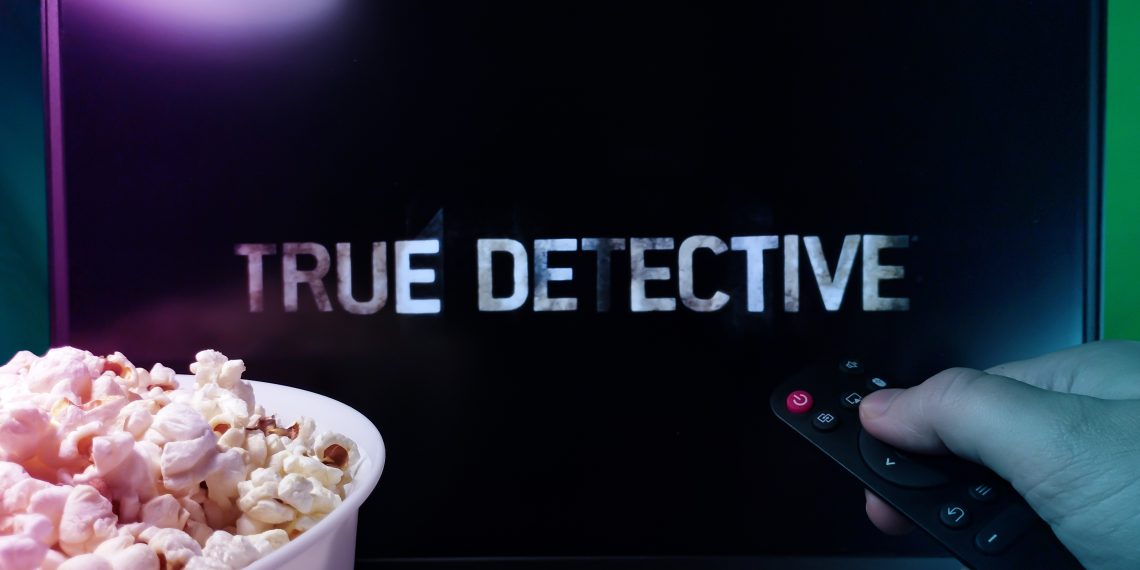True Detective’s Triumph Amidst Creator Discontent
“True Detective: Night Country” smashed the ratings, pulling in a jaw-dropping 3.2 million eyeballs for its finale, with a season total soaring past 12.7 million. Numbers like these are a dream for any showrunner, yet here’s where it gets spicy: Nic Pizzolatto, the brain behind the True Detective universe, couldn’t help but air his grievances on Insta, griping alongside disgruntled fans about the latest season’s story arcs. Amidst this public display of dissatisfaction, it’s astonishing how the show’s viewership didn’t waver but rather solidified. You’d think a creator stirring the pot would send viewers packing, but True Detective loyalists clung tight, proving that a show can eclipse its own off-air drama. Pizzolatto, despite his departure from HBO and early FX exit hatch-pulling, still cashes in on his exec producer creds. His discontent hints at the complex nature of television production, where the original impetus for a show often clashes with its evolution over time. But chaos in TV land’s nothing new, right? It’s the push and pull of wills, the tug-of-war between original vision and fresh interpretations. While Pizzolatto played the critic, the fourth season’s showrunner, the supernaturally inclined Issa López, kept it classy, praising Pizzolatto’s genius and steering the ship with a steady hand. She embraced the challenge of reinvention, crafting those “love letters” to the first season, despite the fanbase’s mixed feels and Pizzolatto’s own thumbs down. True Detective’s anthology vibe means it’s always rolling the dice with new detectives, new cases, new everything. It’s a gamble that’s kept us coming back for more, no matter who’s at the helm, showcasing the resilience and adaptability of the franchise amidst its internal discord.
Harnessing Fan Dedication in the Face of Controversy
When you’ve got a show that’s as much a phenomenon as a TV series, fans don’t just watch; they invest. They’re shareholders holding emotional stock, and when True Detective’s captain jumped ship and critiqued from afar, it could have sunk the vessel. Instead, fans stood by the franchise like die-hards. Kali Reis, Night Country’s star, swung back at Pizzolatto’s social media shade, expressing her letdown. Yet, her response was not to abandon ship but to highlight her continued allegiance to the series. She owned up to her fan status, especially for that spellbinding first season. This speaks volumes about the deep connection the audience feels with the show, transcending beyond just the content on the screen. This is what we’re talking about when we say “fan dedication.” Despite the behind-the-scenes squabbles, viewers aren’t just tuning in; they’re tuning out the noise. They’re here for the long haul, mesmerized by True Detective’s dark allure, its gritty narratives, and the promise of the unexpected. Their fidelity speaks to the magnetic quality of the show’s storytelling, which remains compelling enough to withstand the turbulence of its production saga. A creator might have his say, but it’s the fans who keep the lights on, who keep the series alive in forums, fan pages, and those binge-worthy weekends. Their unwavering support is the true to the series’ impact, sustaining its presence in the cultural zeitgeist.
Building Cohesion in a Franchise with Diverging Visions
True Detective’s model is a wild card—each season is a self-contained universe tied together by a thematic thread. It’s like ordering a different flavor from your favorite ice cream shop; you trust it’ll be good, even if it’s not what you scooped up last time. But cohesion doesn’t just happen; it’s crafted. With Pizzolatto’s first season setting the bar stratospherically high, it was a herculean task for subsequent showrunners to keep that True Detective ‘je ne sais quoi’ while also sprinkling in their own secret sauce. Issa López, with her penchant for the supernatural, stirred in her own ingredients, daring to take the series into uncharted territories. The result? A cocktail of classic True Detective elements with a twist. Admittedly, it’s a tricky balance—pleasing existing fans while chasing new ones, and each season must walk that fine line. Each season is a reinvention that risks severing the ties to what made the series so captivating. But it’s that very risk that keeps the series from stagnating, the consistent inconsistency that keeps us glued to our screens, waiting to see just how the next season will bend the True Detective formula while somehow, miraculously, staying true to its roots. The franchise’s ability to maintain thematic threads amidst changing narratives and characters is a tribute to the writers and producers’ expertise, whose efforts ensure that the show’s essence endures through each reinvention.
The Art of Diplomatic Showrunning and Fostering a Positive Series Image
Running a show is like being a diplomat in a land of a thousand opinions. When Nic Pizzolatto voiced his dissatisfaction with the fourth season, Issa López had to navigate those choppy waters with grace. And that’s exactly what she did. Instead of fanning the flames, she acknowledged Pizzolatto’s sentiments and countered with her admiration for his work, keeping the public face of the series diplomatic and positive. It’s a delicate dance, maintaining the image of a series amid controversy. Indeed, every statement, every tweet, every interview is a chance to either patch the cracks or let them widen. López opted for repair, emphasizing the love poured into the fourth season, the nods to the series’ roots, and her vision for its future. It’s this kind of showrunning that can turn turbulence into triumph, that can make fans feel like they’re part of a legacy that values its past but isn’t afraid to evolve. A positive series image isn’t just good PR; it’s a lifeline to the viewer, a signal that, no matter what happens off-screen, the show will go on, and it will be worth the watch. López’s approach exemplifies the importance of leadership that respects the source material while confidently guiding the series into new territory, ensuring that the show’s reputation remains as sturdy as its fan base’s loyalty.










